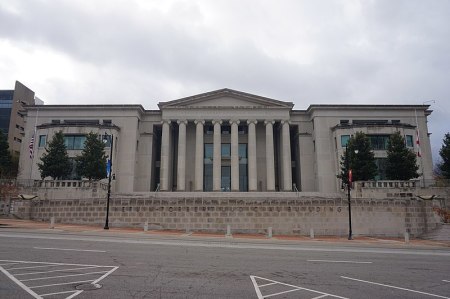Alabama Supreme Court sides with megachurch over property dispute with UMC

The Alabama Supreme Court has rejected a request from a United Methodist Church conference to kill a lawsuit filed by a megachurch trying to secure the rights to its church property as it disaffiliates from the denomination.
In a decision Friday, Alabama's highest court rejected a petition to dismiss the lawsuit filed by Harvest Church of Dothan in 2022 against the UMC Alabama-West Florida Conference in hopes of legally securing the rights to its property.
Associate Justice Greg Cook authored the decision, arguing that, despite the UMC's claim that a secular court should not tackle the church dispute, "it is undisputed that civil courts do have jurisdiction to resolve church-property disputes."
"Under this Court's well-established precedent, then, civil courts can properly exercise jurisdiction to adjudicate church-related disputes as long as those disputes can be resolved (1) based on 'neutral principles of law' and (2) without resolving a religious controversy," wrote Cook.
"The AWFC and the [UMC General Council on Finance and Administration] have not cited a single Alabama case holding that the First Amendment bars a trial court from adjudicating a church-related dispute over real property."
Harvest Lead Pastor Ralph Sigler, who helped to found the congregation, said in a video posted to Facebook on Friday that it was "really exciting" and that "we give God praise for that."
"We'll see how the long the conference, bishop and trustees want to carry on the legal proceedings or if they're ready to drop it," Sigler said. "We're thankful to the Lord for an exciting win."

In November 2022, Harvest filed the lawsuit against the UMC out of concern that the congregation would lose control of its Fortner Street campus if they sought to leave the denomination.
"UMC purports all property owned or acquired by Harvest Church is actually subject to a legal trust in favor of the UMC denomination," stated the lawsuit, according to WTVY. "Unless restrained by an [court] injunction, there is accordingly a significant risk that UMC will improperly confiscate or interfere with Harvest Church's property."
The AWF Conference took exception to the characterization of the relationship between the regional body and the congregation, saying in a statement that it was "an unfair representation of the conference's actions and intentions."
"Harvest has given no official indication to the conference that they plan to disaffiliate from the UMC, nor have they begun the discernment process as laid out in our conference policy. The conference has taken no action or indicated it would take any action towards Harvest Church," said the conference at the time, as quoted by WTVY.
Two months after the lawsuit was filed, the congregation voted overwhelmingly in January 2023 to seek dismissal from the UMC. A few months later, Houston County Circuit Judge Chris Richardson rejected the UMC's request to dismiss the departing church's lawsuit.
Over the past few years, more than 7,000 congregations have left the UMC over the denomination's decadeslong debate over whether to remove language from the UMC Book of Discipline that bans same-sex marriage and prohibits the ordination of noncelibate gay clergy.
In May 2023, the AWF Conference held a special session in which it voted to approve the disaffiliations of 193 congregations that decided to leave the denomination over the debate. That left the conference with 318 churches, 13 of which have memberships of over 1,000.
"We grieve in saying farewell to the 193 churches disaffiliating from the United Methodist Church and wish them the best in ministry," AWF Bishop David Graves said in a statement at the time. "Many of these churches have dedicated clergy and laity who truly desire to serve God and their communities."
"I especially want to thank those churches who have decided to remain United Methodist and those who heard my call to refrain from holding discussions around leaving the denomination until we have more information."





















